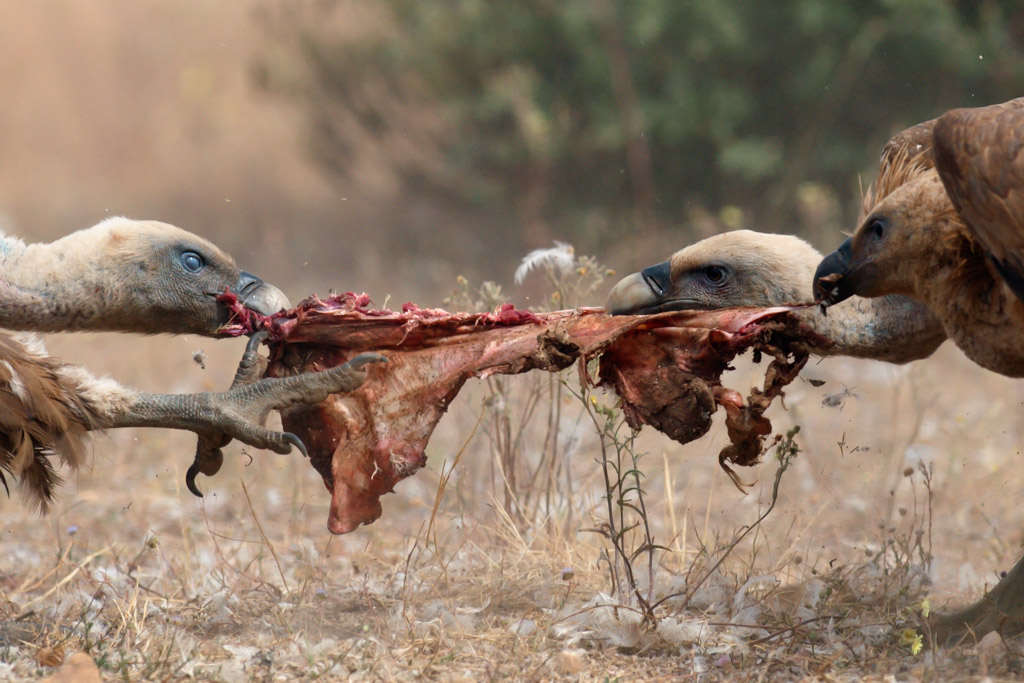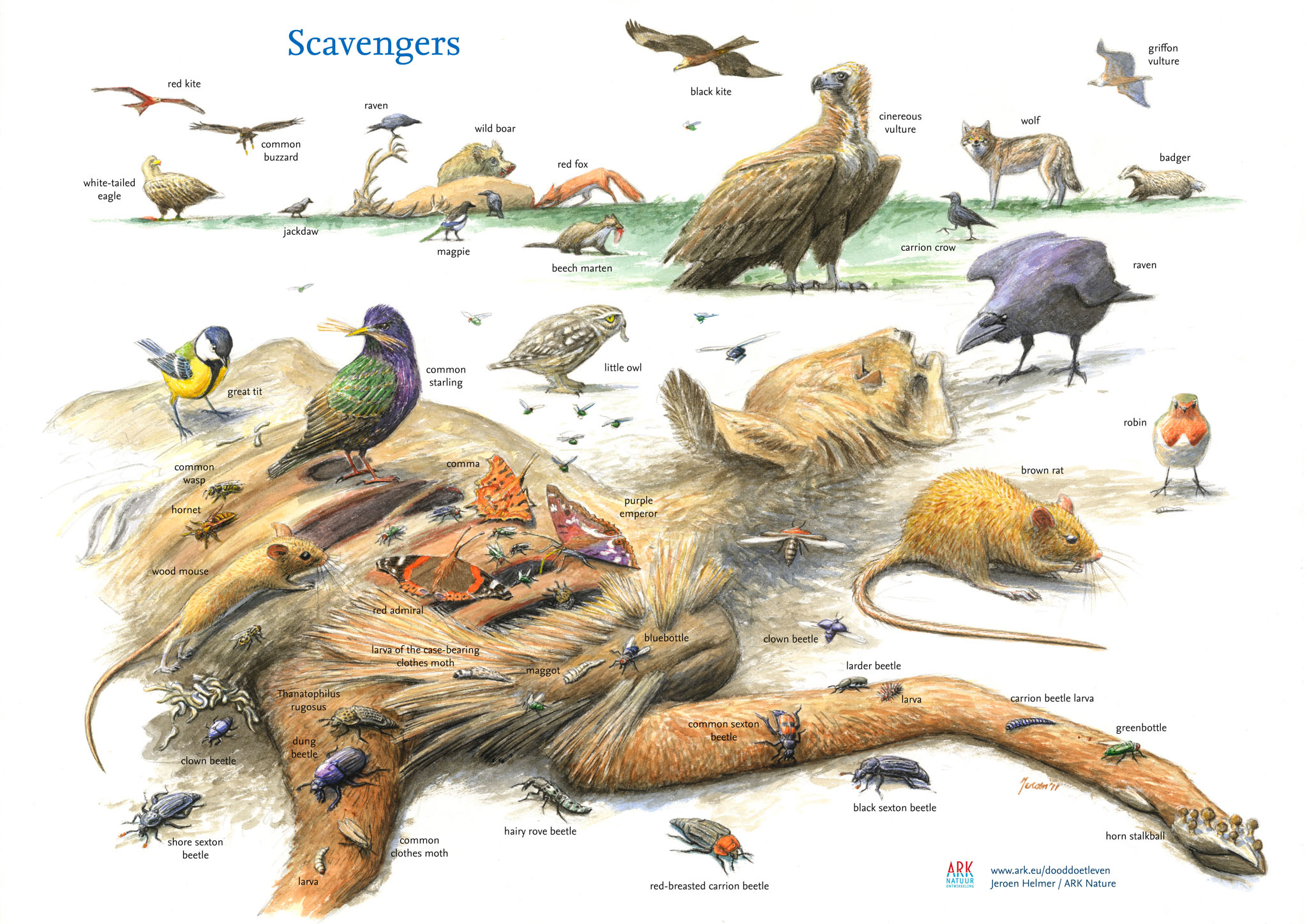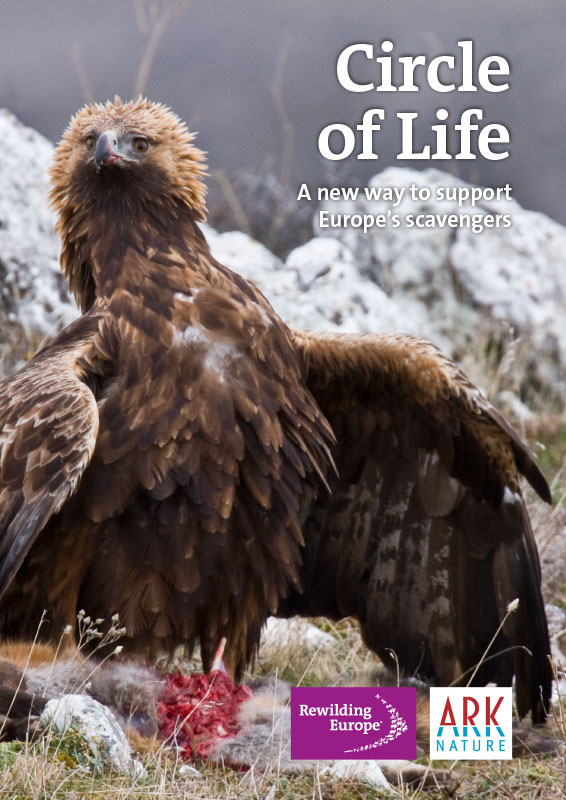The GPS tagging of vultures and reintroduction of wild herbivores in the Rhodope Mountains rewilding area is now demonstrating how Rewilding Europe’s Circle of Life approach can really help the comeback of scavengers.

In Bulgaria’s Eastern Rhodope Mountains, on the border with Greece, the griffon vulture population is increasingly supported by natural prey and the carcasses of wolf kills. As part of the ongoing LIFE Vultures project, information obtained from GPS transmitters attached to the birds has given members of the Rewilding Rhodopes team new insight into this fascinating link in the food chain, and enabled them to present it to a wider audience.
In August the use of GPS tags allowed the LIFE Vultures team to document the increasingly vital role that carcasses play in the Rhodopean cycle of life. As part of their regular monitoring activities, the team visited a location frequented by three tagged griffon vultures over the course of consecutive days. Here they found the remains of several red deer carcasses.

“It was clear that the three tagged vultures had been feeding there, but judging by the number of feathers the total number of vultures present could have been anything up to 40,” says Volen Arkumarev, a vulture expert in the Rewilding Rhodopes team.
This is the third documented case of red deer being eaten by wolves and vultures in the Rhodope Mountains rewilding area.
“We have seen the remains of dead animals on a number of occasions at this same location,” says Volen. “It seems to be a favourite place for wolves to prey on deer.”
This particular incident highlights the fact that the remains of dead animals are a vital food source for a diverse range of wild animals, including vultures, right across Europe. As the most high profile example of scavenging species, these majestic birds are reliant on that final, valuable link in the food chain – the carcasses of large herbivores.
Strengthening the circle
Rewilding Europe, together with Dutch NGO ARK Nature, want to help Europe’s scavengers by encouraging a fresh look at how herbivore carcasses are managed across the continent. This new approach, presented last year on International Vulture Awareness Day, is called the Circle of Life.
A Circle of Life brochure, available to read here, provides a practical overview of the possibilities for such an approach, addressing relevant stakeholders such as those managing nature, fauna and roads. The background information it contains is intended to inform policymakers, as well as other parties interested in expanding their knowledge about this fascinating, essential and often overlooked link in the food chain.

In line with the Circle of Life approach, the Rewilding Rhodopes team is currently working hard to boost the local availability of wild carrion and thereby support the diverse range of species that depend on it. Restoring food chains in the Rhodope Mountains through the reintroduction and restocking of fallow and red deer populations is a flagship project, supported by the European Commission (through the LIFE Vultures project) and Fondation Segré.
Collaborating closely with Bulgaria’s National Hunting and Fishing Association, 50 red deer and 138 fallow deer have been released in the rewilding area over the last five years. Despite predation by wolves, these reintroduced populations are currently doing well.
With domesticated animals in decline in the Rhodope Mountains, the carcasses of wild animals are an increasingly important food source for vultures and other scavenging species. Stable fallow and red deer populations should also become an increasingly important food source for locally present wolf packs, reducing conflict with livestock breeders.
“Artificial feeding through so-called ‘vulture restaurants’ still has a role to play in supporting the comeback of these birds, but our main focus will always be to help scavenging species by boosting the availability of wild herbivore carcasses,” says Avramov.
Straddling the border between Bulgaria and Greece, the eastern part of the Rhodope Mountains represents the last stronghold of Balkan vultures. The Eastern Rhodopes host the only griffon vulture breeding site in Bulgaria, while the most important Balkan breeding site for the globally endangered Egyptian vulture is also found here. On the Greek side, the only black vulture colony on the Balkan Peninsula is situated in Dadia National Park.
Starting in 2016, the five-year LIFE Vultures project was developed by Rewilding Europe, in collaboration with the Rewilding Rhodopes, BSPB/BirdLife Bulgaria and a range of other partners. Focusing on the Rhodope Mountains rewilding area, as well as a section of the Rhodope Mountains in northern Greece, the aim of the project is to support the recovery and further expansion of local black and griffon vulture populations, mainly by improving natural prey availability, and by reducing mortality through factors such as poaching, poisoning and collisions with power lines.

